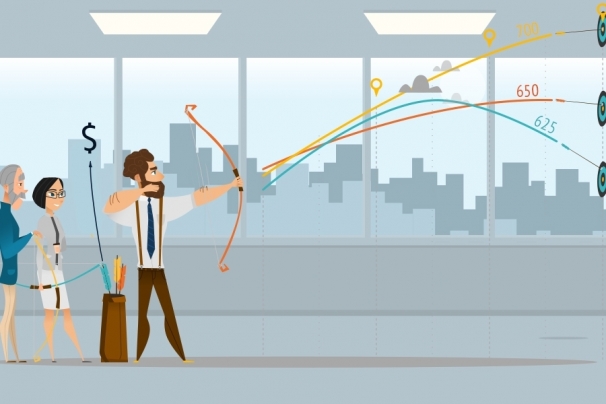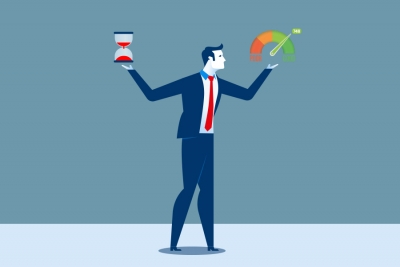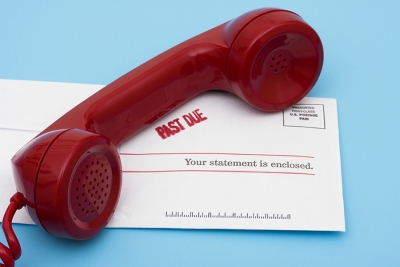By now we all know that the total balance of payments is a major factor in determining your credit score.
What happens if you keep less of a balance on all your credit cards, but sometimes forget to make payments? Or, even worse, what happens if you have a high balance on your credit card and miss payments often?
This article aims to help you understand how much making timely payments has an impact on your credit score.
All in all, it is one of the most important factors in determining your credit score.
Missing payments on a regular basis are one, or possibly the most important, aspect which goes into your credit score.
For example, say you carry $100 on a credit card with a limit of $1,000. Your credit utilization ratio is excellent in this example, only 10% of available credit being used.
What would happen if you missed payments on this card for three months, even though your balance is not high?
The truth is that your credit score will tank because missing payments makes you an extremely unreliable borrower. Your credit score is what helps lenders know whether or not you are likely to pay back your loans. Knowing whether you will pay them back on time is treasured information for lenders.
What happens when you go late on a payment?
This section will explain in detail what happens after one month, two months, and three months of missing payments.
The average american credit score, according to Experian, is 687.
Now, you don’t have to fret if you’ve only missed a payment by three or four days. This short of a payment delinquency usually will not ever be reported to the credit reporting agency.
Most banks and credit card companies only really care if you’re late on your payment by 30 days or more.
That is not to say that you should consistently be paying multiple days late. But, it is not the end of the world.
However, credit card companies and banks certainly have the right to administer their late fees. These are often extremely harsh, so don’t push it. Creditors also have the right to increase your interest rate if you have missed even one single payment
First, let’s discuss what happens if you end up 30 days late on a payment.
Because your payment history and appropriate payment behavior is the most important factor in your credit score, it is critical to understand the consequences of missing a payment, even by only a month.
This applies to any loan payment, be a credit card, your mortgage payment, your auto loan, or student loans.
According to FICO, if you have a perfect credit history with no late payments ever, a single payment which is late by 30 or more days will have an impact of 90 to 110 points being lost from your credit score.
Considering that the range of credit scores is only a couple hundred, this is a huge impact and will mess up your reputation it was current and future potential lenders.
Not only does it lower your credit score, but it also subjects you for late fees and other consequences.
It is not guaranteed that it will lower your credit score. It is up to the creditor whether they choose to report the incident to credit reporting agencies or not. But, better to play it safe and assume that they probably will say it.
Now, let’s discuss what happens if you miss the same payment by 60 days instead of 30 days. Your credit score will drop by an additional 60 to 80 points, possibly in addition to the first loss of points.
These late payments can remain on your credit report for up to seven years, even just with one late payment.
However, over time the delayed payments have a lesser impact on your credit report, and it will not ruin your financial life, so it is nothing to be too stressed over.
After 90 days, you will likely experience another drop of 60 to 80 points on your credit report.
This means that if you have a perfect credit history, one late payment of over 90 days and possibly drop your credit score up to close to 300 points.
However, situations may arise where you cannot always pay off your debts promptly.
Instead of panicking and coming anxious about the situation, you should always try to contact your lender and try to make additional arrangements or come up with a modified payment plan.
Most lenders, if treated respectfully, will understand your situation and would rather try to work with you and report an unpaid installation on loan.
Long Term Affects On Your Credit Score With A Bad Payment History
It’s possible to have never made a late payment, but carry a high balance, and still have a credit score over 700. However; no matter how little your balance on your credit card or loans is, making timely payments is crucial when factoring your credit score.
Even if the credit card balance is low, if a person has paid multiple late payments on a consistent basis, it is unlikely that their credit score will be any higher than five or six hundred.
Even though it would seem like someone who borrows a lot of money would have a lower credit score, that is not the way it works.
The amount isn’t the matter, but the patterns of behavior about repayment are everything.
It doesn’t matter how much money you borrow, as long as it is within your means to make consistent and timely payments.
When lenders and future potential creditors look at your credit history, if they see that you borrow a lot of money and pay off on time, they don’t have any problem lending you more money because that is a benefit to them because they get to charge you high interest rates anyways.
The most important thing is to make timely payments, always.
What if I never pay off my debts?
If you continue to hold your delinquent loans and never pay it off, there are a few different stages of the process which will happen to you as lenders try to enforce the repayment of the loan they have given you.
Most lenders will not simply let that go because they know they can try to mine as much money as possible out of consumers who are in dire financial straits.
This is why it is crucial never to let the system wear you down, and know that your value as a person far surpasses your debt. There are just a few logistical things you need to be aware off if you choose not to repay your debts.
First of all, there is always a way to make it work. Set up a payment plan, ask for lower interest rates or extensions on making payments, or something else.
Lenders are human beings too, and they don’t necessarily want to make you broke and miserable.
Here are the things which will happen if you don’t pay off your debt:
- A chargeoff is when the lender writes off your debt and says that it is unlikely ever to be repaid. This is the functional equivalent of saying it is a lost cause. After six months of not making a payment, that is when the charge-off usually occurs.
- After this point, the lender essentially sells the debt to a collections agency. They make a dollar or two off of the debt. At that point, it is up to the collections agency to decide if they are going to try to push for the debt to be repaid. If it is a tiny amount, it is not usually worth their effort. But if it is a significant amount, they will likely never stop badgering you unless you move to stop them.
- Sometimes, debt collectors will sue a debtor for non-repayment. If they take the debtor to court, the court will file a judgement for or against the debtor. That decision becomes public record like any other criminal or civil suit.
- Garnishment is when you fail to repay your debts, and the lender withholds some of your pay by force. It is questionable whether this is constitutional. But they can garnish up to 33% of your wages from a paycheck.
Here’s how credit score can be determined outside of missed payments:
- Payment History
- Credit Utilization Ratio
- New Credit
- Length of Credit History
- Type of Credit
This concludes part 2 of 5 on how credit score is determined and why it’s so important for you, an American financial consumer to understand this.









Leave A Comment